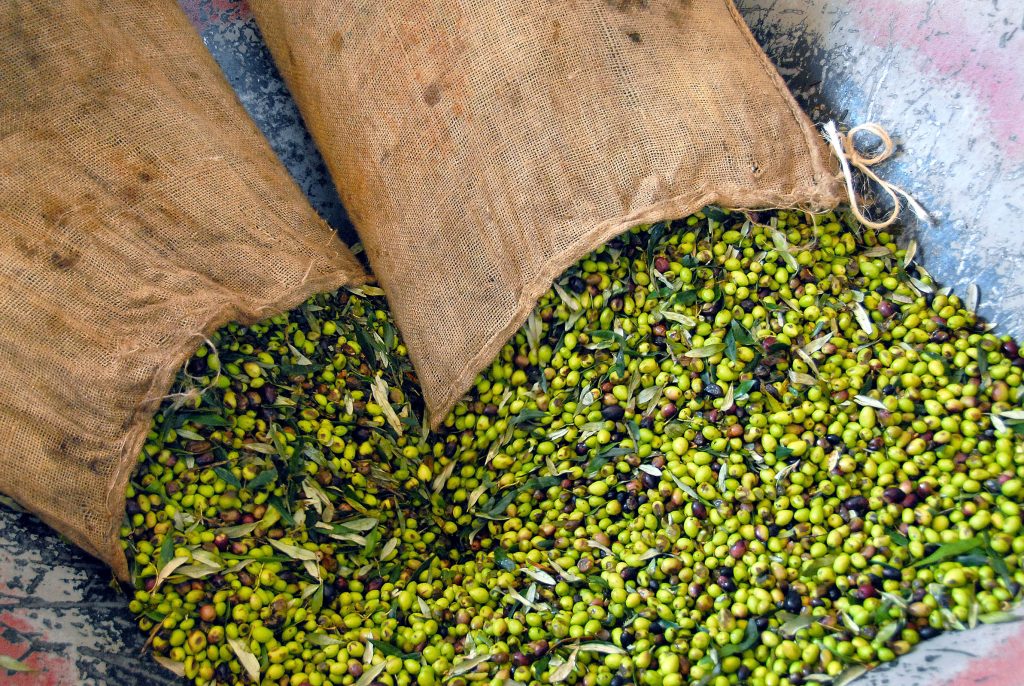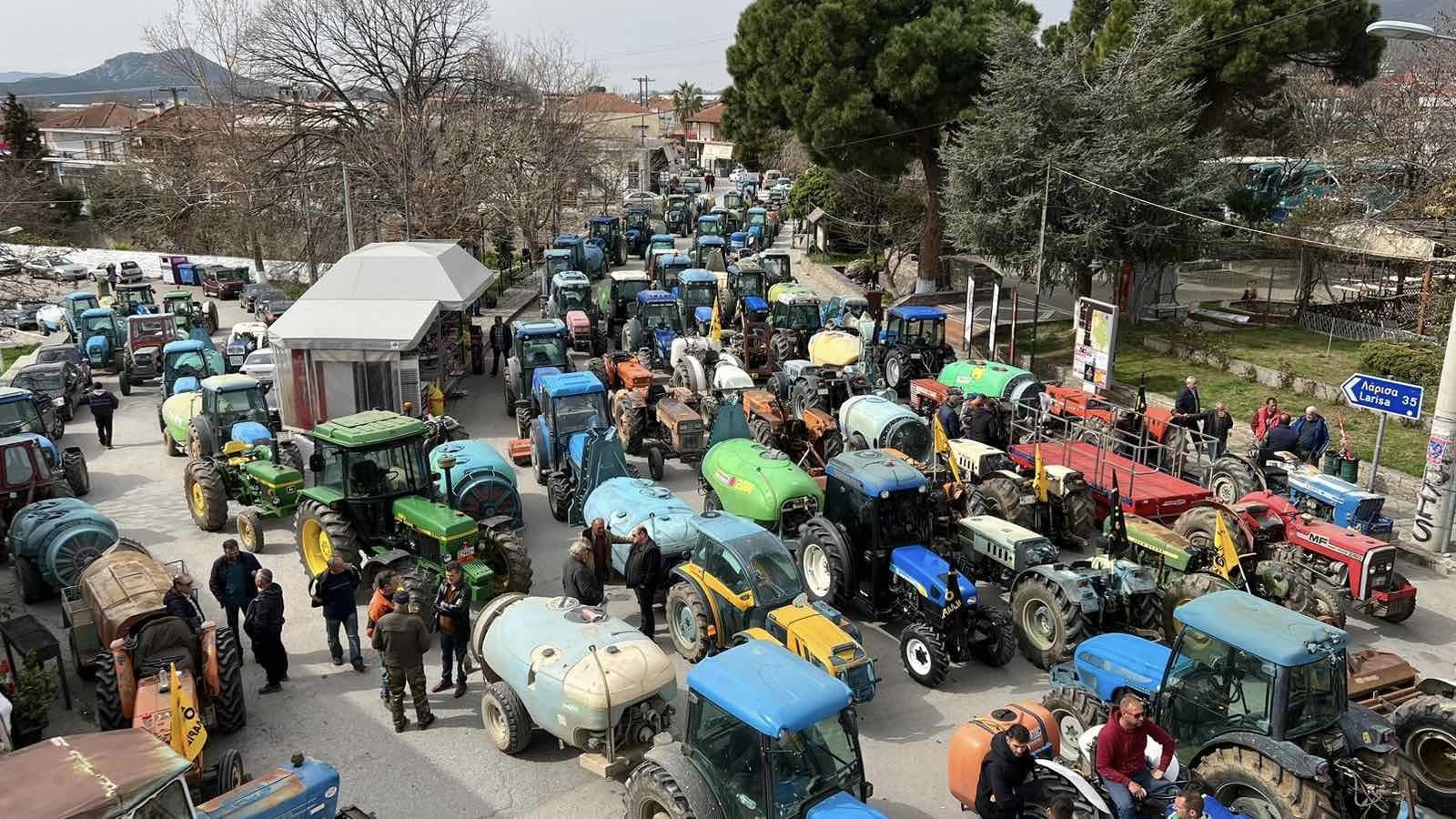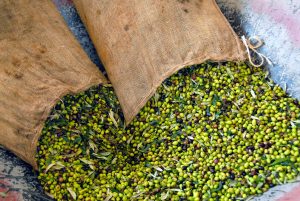A wave of farmers drove their tractors and blocked the central square in Greece’s Agia Larissa prefecture today.
The apple and chestnut producers held the rally alleging they have not received the promised compensation from the floods that wrecked the area last year after storm Daniel and Elias.
The rally was organized by the United Federation of Agricultural Associations of the Prefecture of Larissa and the Agricultural Associations and Cooperatives of Agia.
The farmers call for full compensation for apple and chestnut crop damages, a clear payment schedule, and the release of findings on a more recent hailstorm and frost damages to cherries and other crops which have not been released by the Hellenic Agricultural Insurance Organization.
“The farmers of Agia, who saw their production destroyed and have a reduced income, have no other income apart from the compensations that have been given to all the affected farmers of Thessaly except for those from Agia [Larissa]” stated the United Federation of Agricultural Associations of the Prefecture of Larissa.
“As a sign of goodwill, we gave the Ministry of Rural Development time to announce the payment schedule and compensation amount by the end of November, so far we have not received a response. Through our own research we know the number of productive acres that must be compensated and the amount for apples amounts to 380 euros per acre, while for chestnuts an amount of 200 euros per acre.”
One of the greatest disaster in recent years was the one suffered by the farmers of Thessaly from Storms Daniel and Elias in September 2023. They saw their crops submerged in water and their livestock drowned.
The Hellenic Agricultural Insurance Organization had previously stated compensations amounting to 270.2 million euros were awarded, and estimated that expenses will reach 310 million euros.
Farmers accuse the government of neglect and failing to fulfill promises made in September, despite ongoing protests and official requests. Specifically farmers have protested that compensation payments were delayed significantly and did not meet actual needs, as only about 70% of the damage was compensated, despite government announcements promising 100% compensation.
Greek farmers, but also farmers across Europe, are already suffering from the impact of climate change through warmer temperatures, droughts, and floods, which deal a serious blow to both crops and livestock production
And extreme weather events, which are becoming more frequent across Europe, often lead to severe financial losses for farmers after each incident of extreme weather.






